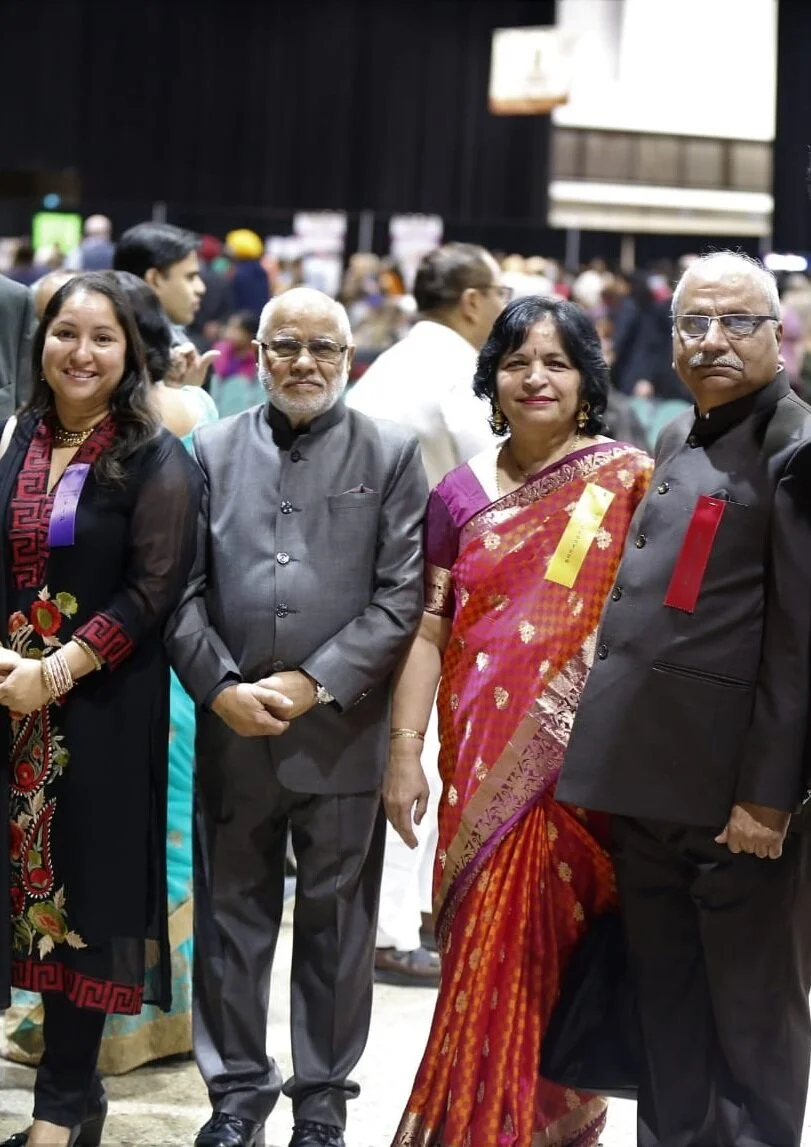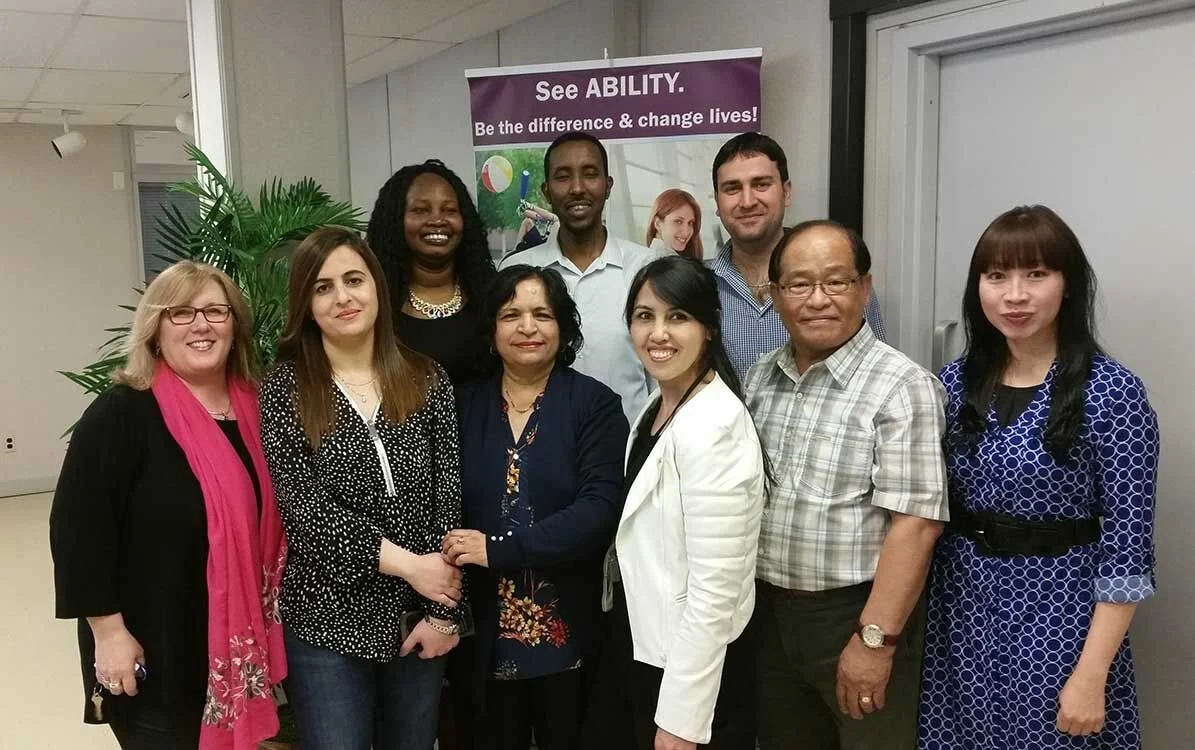Ethno-Cultural Program Supports Newcomers To Winnipeg
“SMD means lots to me,” she says humbly. “They have given me so much support and in turn, I have been able to support so many others in my community.” Rajee Sharma
Imagine growing up in a city with a population of over 2.5 million people, with different languages, religions and cultural traditions. For Rajee Sharma, this was her childhood. She was born in Punjab Province, but the family moved to Delhi, India, when she was very small. As a child she was surrounded by children speaking many languages from other parts of the country. As a result, over time, Rajee became fluent in seven languages; Hindi, English, Punjabi, Urdu, Sanskrit, Gujarati, and Nepali. When asked what important qualities she learned from her parents she says, “Empathy, sympathy, tolerance and kindness.” No doubt, these traits would have a tremendous impact in her life.
Prior to immigrating to Canada, Rajee completed her education, earning a Masters of Arts degree. After arriving in Winnipeg with her family in 1990 she soon found a job at a factory sewing garments. Her passion though, was working with children, so she started volunteering at a daycare. “After 5 days, I was hired part-time,” she laughs.
During her work at the daycare Rajee met a member of staff from SMD. Rajee learned about the work of the organization and later successfully applied for a position with SMD, to work part-time as a Cultural Resource Facilitator within our Ethno-Cultural program. Initially she worked with adults making a lot of connections to the Parking Permit program and Wheelchair Services. In 2002, the Ethno Cultural Program expanded and began working with children “I was very happy once we began accepting referrals from service providers working with children, such as the Children’s Services Coordination program,” she says.
“Rajee is approachable, understanding, and radiates with compassion.” Traicy Robertson
Rajee worked, embedded in her community, helping newcomers with disabilities from Afghanistan, India, Pakistan, Nepal and Bhutan, soon she was being approached at her local temple by people seeking help. “Temple has given me so much,” she says. “When I meet with families and they find out I work at SMD, it gives me recognition and they open up to share their story. Then, I am able to connect them to the appropriate services.” Rajee also stresses the importance of listening to clients with good intentions. “I take only 5 minutes just to listen to what they have to say,” she says. “You would be amazed at how powerful that can be.”
As a Cultural Resource Facilitator, Rajee’s role at SMD is quite complicated. She not only acts as an interpreter between service providers and newcomer families, but also as a cultural broker, bridging understanding of cultural differences. Very simple things, such as body language, can cause misunderstandings, as Rajee says; “It’s confusing and takes time to learn these differences. Sometimes, I have to tell my coworkers that when some of my clients speak, if they don’t make eye contact, it is not that they are not listening to you, it’s just a cultural difference.”
As immigration levels increased, so did Rajee’s caseload, and her position became full time with SMD. It is not always easy to settle in a new country and if a family member has a disability that can complicate the process. The Ethno-Cultural program plays an important role in assisting those families; linking them to services and helping them understand complex systems, so that they are able to make independent, informed decisions about their own care, or the care of a family member. Having staff at SMD like Rajee, who understand and are familiar with the culture of our clients, helps to remove many barriers.
“Some families I work with don’t know any English,” says Rajee. “They also don’t know why they should sign release forms or fully understand the roles of service providers, such as SMD staff. That’s where I come in. We are not only helping one child, adult, or family to understand…we are helping the community build knowledge and understanding.”
“…We are not only helping one child, adult, or family to understand…we are helping the community build knowledge and understanding.” Rajee
Rajee has accumulated countless memories and stories over the past 20 years working at SMD. One story that stands out to her is of 7 year old boy from Pakistan. Rajee met him one day in a school that she was visiting. During their conversation she asked him basic questions such as “How are you?” in Punjabi. She noticed that he was answering differently than she expected, so she asked the parents if his hearing had been tested, as she could see something was different in his speech.
Rajee recommended he get his hearing checked, and later at a follow-up appointment at the school she learned that the child did, in fact, have a hearing problem. Rajee connected the family with the Communications Centre for Children, (CCC), and to Children’s Service Coordination (CSC) for additional supports. The family was so thankful that the boy was able to access services through SMD.
Rajee’s supervisor, Traicy Robertson, also acknowledged her commitment to her role; “Rajee is approachable, understanding, and radiates with compassion.” We cannot be more appreciative of the support, kindness, and generosity that Rajee has given over the years to all of her clients, and her colleagues at SMD.
“SMD means lots to me,” she says humbly. “They have given me so much support and in turn, I have been able to support so many others in my community.”



